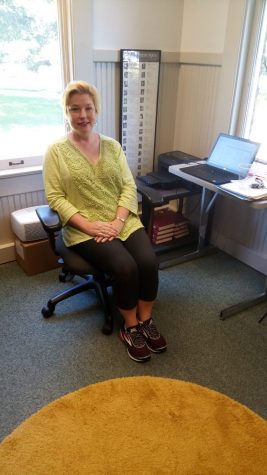Career Planning Office offers advice to students
As the end of the fall semester approaches, it’s more than the right time for students to think about graduate school; the Career Planning Office is a great place to start. With several counselors and numerous resources, Career Planning can help students with any facet of the process.
The first thing to consider is which schools interest you. Career Planning uses several Web sites to help students decide which schools best fit their needs. John Lucas, one of Career Planning’s career counselors, said that this is the most commonly used resource of the Career Planning Office.
Students should generally choose two to three “dream schools,” competitive schools—which Lucas says are programs where students have about a 50/50 chance of being accepted—and fallback schools. Some students, pre-med majors in particular, will have a different sort of list, as their field is highly competitive, and there are fewer “fallback” schools. Professors can also be helpful at this stage of the planning process, as they know which schools offer strong programs in your field of interest.
The next step is test preparation. Medical students take the MCAT in the spring of their junior year, so they should take a preparation course or self-prepare during the fall semester. Other students should prepare over the spring for the summer GRE or LSAT.
Career Planning sponsors a few test preparation courses on campus and can help students find test preparation resources around Austin if other courses are full.
“We offer an LSAT course on campus at a greatly reduced rate. Students can take it for $495, compared with courses at Kaplan or Princeton that can cost $1,300. I think we’ll be offering the MCAT on campus as well,” said Lucas.
hey also help students self-prepare for the test if they opt to not take a preparation course.In the fall of senior year, students should be filling out applications, writing resumes, developing curriculum vitaes and writing personal statements, all tasks with which Career Planning can provide assistance. “Most students don’t hear about personal statements until they start applying,” said Lucas.Personal statements are around two pages long and tell the school why you want to attend and what you want to do in the program. These statements are one of the most important aspects of graduate school planning that Career Planning helps with.
The office also provides information on financial aid for graduate school. Lucas said that federal and state grants for graduate school are generally sparse, but there are plenty of loans. Additionally, admission to a Ph.D. program usually comes with a full waiving of tuition. Doctors and lawyers are less fortunate, and they can rack up between $75,000 and $150,000 in debt throughout their stint at school.
In this poor economy, graduate school is particularly important matter to consider.”For students thinking about delaying graduate school for a year or two, it makes much more sense to go right away in this economy,” said Lucas. “By the time you come out, hopefully the economic situation will have turned around significantly.”
For students interested in graduate school assistance, you can visit the Career Planning Office in Moody Hall 134. Career Planning also offers several workshops each semester, with a detailed schedule for the spring semester available after the Thanksgiving holiday.
“From day one, do as well as you can in your classes. Start the process as early as possible and attend some of the workshops,” said Lucas.









